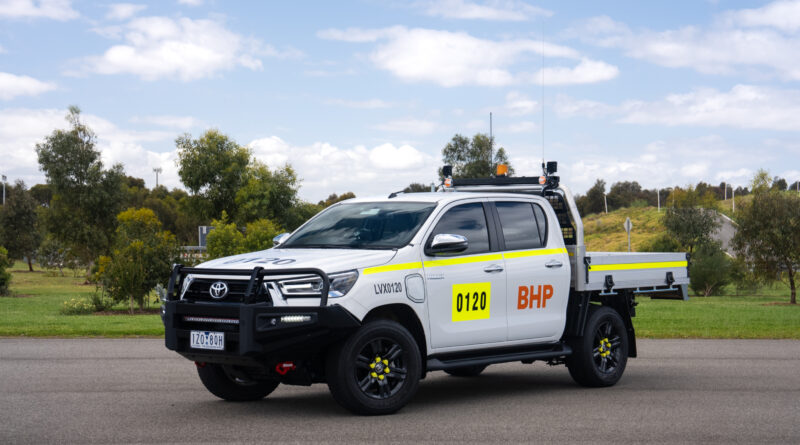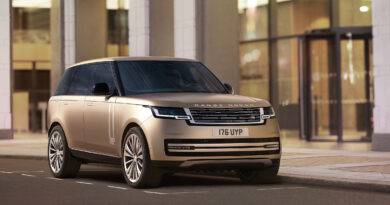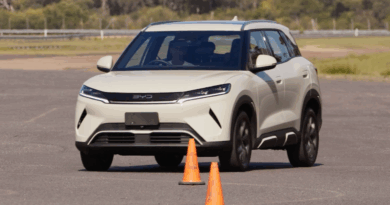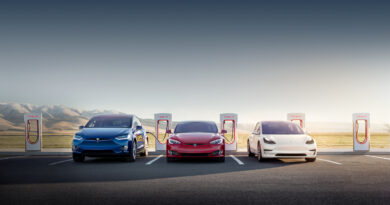Advantage Toyota? Electric Toyota HiLux a big step closer as BYD and Kia take an EV ute breather
Hybrid heavyweight Toyota has joined the race to develop the first serious all-electric dual-cab off-road ute.
While Chinese brands BYD and GWM are readying plug-in hybrids electric (PHEV) utes and Ford plans to roll out a PHEV Ranger around the middle of 2025, the legendary Toyota Hilux could beat them all to a zero emissions dual-cab that can also tackle the tracks and trails Aussies expect a ute to conquer.
The hint came late last month when Toyota announced it was developing an electric Hilux with mining giant BHP.
READ MORE: Toyota takes next step to hydrogen Hilux, LandCruiser in deal with BMW
READ MORE: BYD Shark 6 priced from $57,900, undercutting Hilux and Ranger
READ MORE: Kia Tasman eyes hybrid ute option, but EV dual-cab a no-show for now
READ MORE: Are diesel’s days numbered? All-new Mitsubishi Triton and Nissan Navara to score plug-in hybrid petrol powertrains as Toyota RAV4 Hybrid outsells HiLux and Ford Ranger
The one-off all-electric Hilux prototype is the second such development car from the top selling brand that has made hybrids mainstream, following on from the LandCruiser 70-Series EV also being tested by BHP, a project that appears to have stalled.
While widely seen as a spoiler to distract attention from the launch of the BYD Shark 6 and reveal of the Kia Tasman – the electric Hilux announcement was made hours before each of those – there is serious intent behind the PR guerrilla campaign.
It could culminate in an electric Hilux within a few years.
To some extent Toyota has timing on its side.
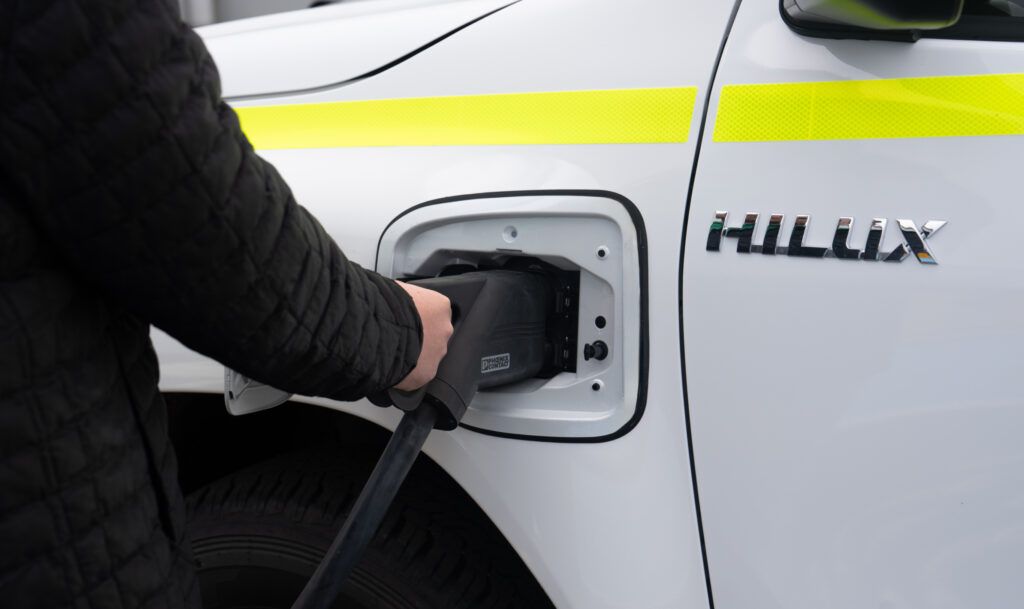
The current Hilux is nearing the end of its life, having been on sale since 2015 (Toyota typically runs 10-year life cycles for its commercial vehicles).
The all-new model is due by 2026 and is expected to leverage the underpinnings of the current car, likely the Rogue and GR Sport models that have a wider footprint.
Toyota reinforced its “multi-pathway approach” in announcing the electric Hilux development.
Multi-pathway incorporates all technologies, including hybrids, plug-in hybrids, battery electric vehicles and cars powered by hydrogen.
And Toyota is clearly keen to emphasise is engineering nous that has helped position the brand nicely as a leader in durability and reliability.
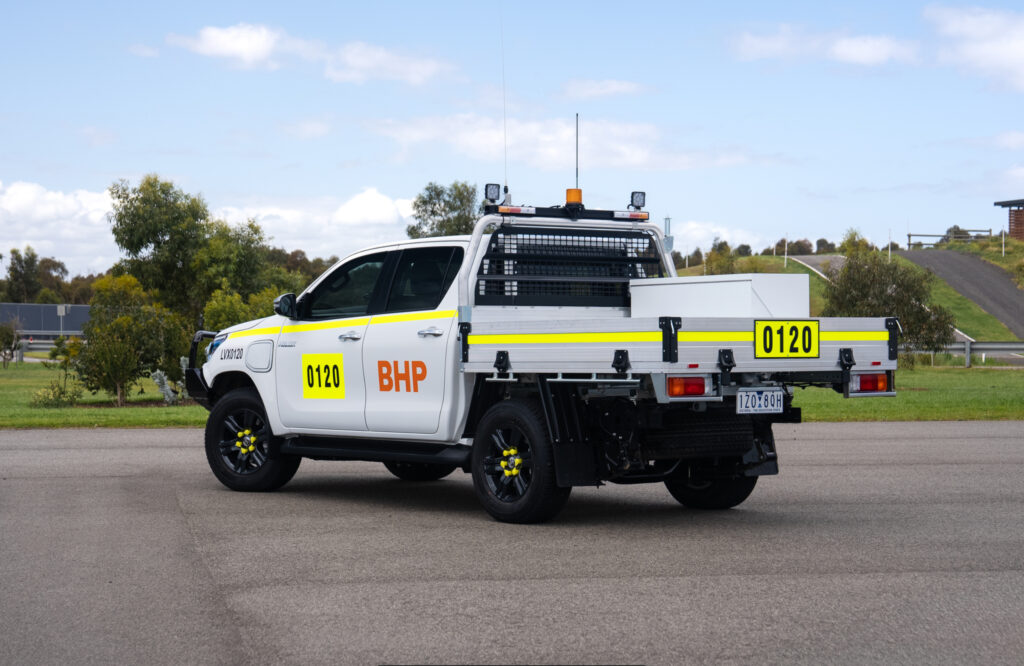
Toyota Australia president and CEO Matthew Callachor said “when we do something, we want to make sure we do it right”.
That partially sounds like an excuse for Toyota’s glacial arrival to the EV space but could also be interpreted as a gentle dig at the newcomer brands charging hard into electric cars.
Either way, Toyota is clearly keen to protect its patch, of which the Hilux is a massive part.
Toyota hasn’t placed a timeline on the progression of the Hilux BEV from prototype to showrooms and history from the brand suggests it’s unlikely to be a sprint.
But it’s also clear Toyota wants to take advantage of brewing interest in zero emissions utes.
While there has been plenty of talk of EV utes being imminent, only one has so far tested the market: the LDV e-T60.
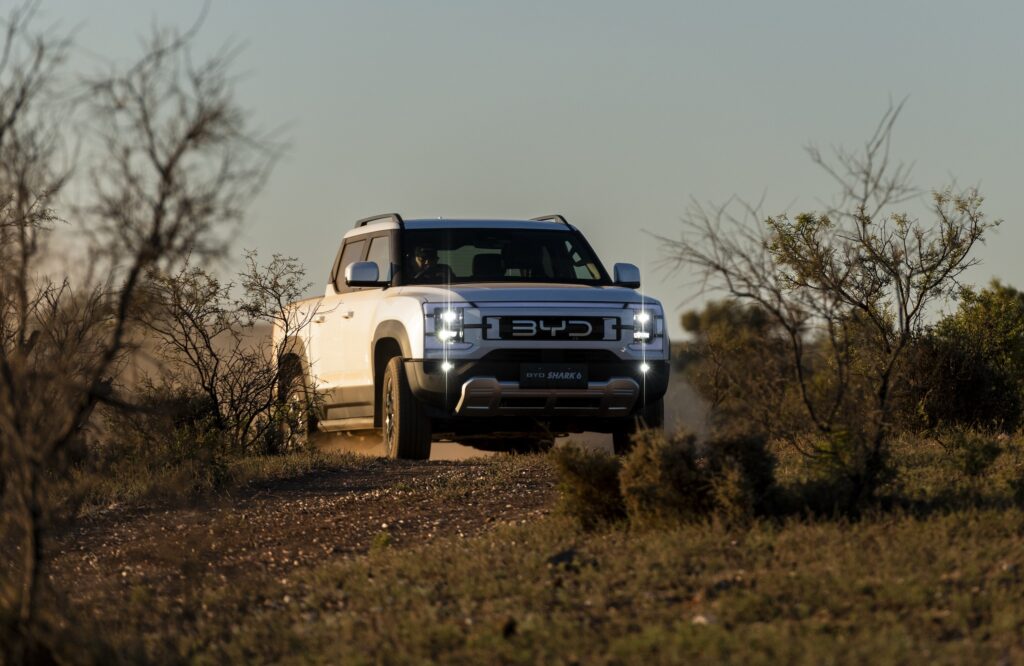
The $93K two-wheel drive sold in tiny numbers and did little to convince the ute faithful they should be considering a switch to electric.
But others have since talked of electric options, BYD and Kia among them.
But those two newcomers in the fast-evolving ute market – with the Shark 6 and Tasman – don’t have any concrete plans for full battery electric versions of the upcoming.
Recently in Australia for the launch of the Shark 6, BYD’s general manager of Asia Pacific sales, Liu Xieliang, said there were no plans to develop an all-electric version of the Shark 6.
“Currently we haven’t considered a pure electric version yet because based on the performance, based on the range we feel that currently PHEV is the best model for Shark 6,” he said through a translator, adding that PHEV was the technology that made most sense for utes in the EV shift.
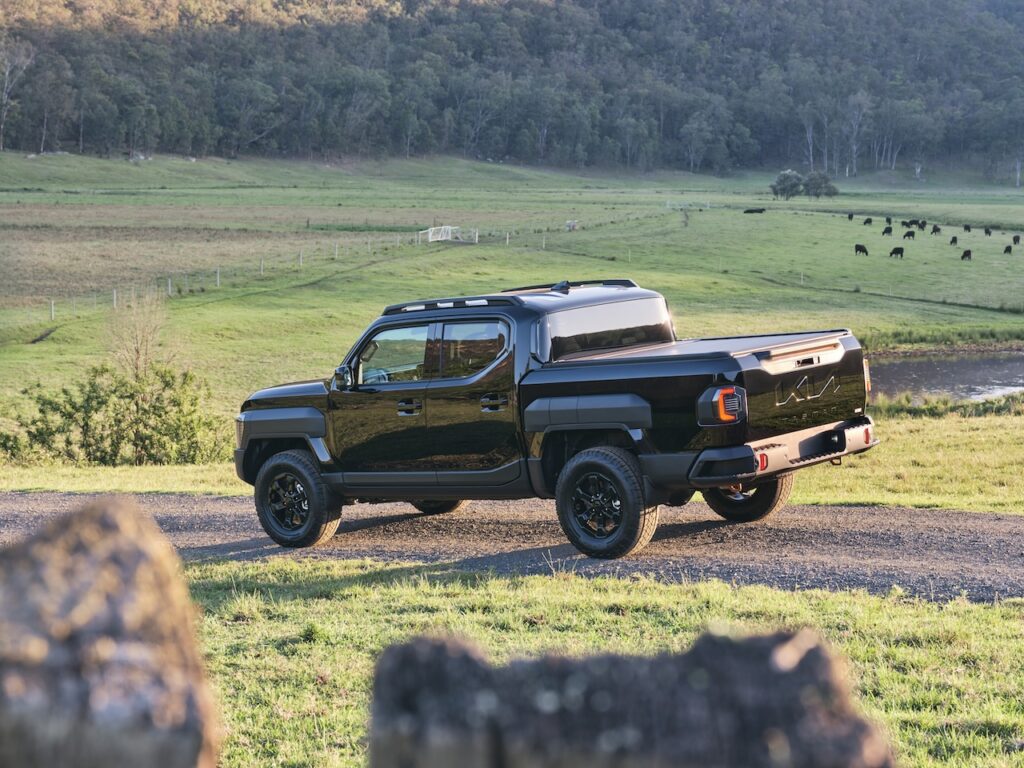
While not ruling out a Shark 6 EV if demand was deemed to be there, he said “currently we are not considering it”.
And Kia Australia CEO Damien Meredith recently told EV Central that original hints of a Tasman EV arriving as early as 2026 were unlikely to come to reality.
“I’m not quite sure that’s still the timeframe,” said Meredith. “Let’s get Tasman into market and see how we go.”

